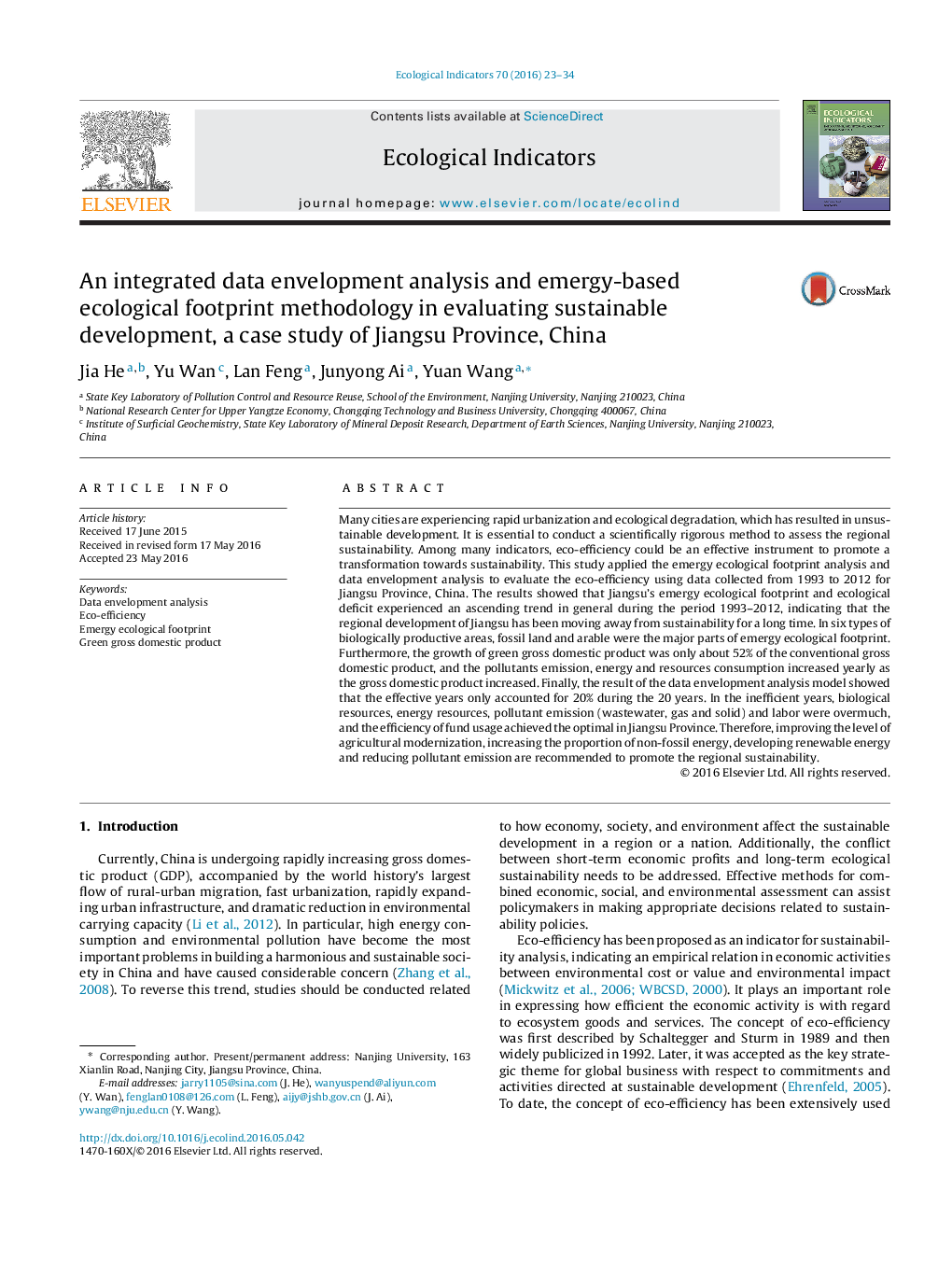| Article ID | Journal | Published Year | Pages | File Type |
|---|---|---|---|---|
| 6293044 | Ecological Indicators | 2016 | 12 Pages |
Abstract
Many cities are experiencing rapid urbanization and ecological degradation, which has resulted in unsustainable development. It is essential to conduct a scientifically rigorous method to assess the regional sustainability. Among many indicators, eco-efficiency could be an effective instrument to promote a transformation towards sustainability. This study applied the emergy ecological footprint analysis and data envelopment analysis to evaluate the eco-efficiency using data collected from 1993 to 2012 for Jiangsu Province, China. The results showed that Jiangsu's emergy ecological footprint and ecological deficit experienced an ascending trend in general during the period 1993-2012, indicating that the regional development of Jiangsu has been moving away from sustainability for a long time. In six types of biologically productive areas, fossil land and arable were the major parts of emergy ecological footprint. Furthermore, the growth of green gross domestic product was only about 52% of the conventional gross domestic product, and the pollutants emission, energy and resources consumption increased yearly as the gross domestic product increased. Finally, the result of the data envelopment analysis model showed that the effective years only accounted for 20% during the 20 years. In the inefficient years, biological resources, energy resources, pollutant emission (wastewater, gas and solid) and labor were overmuch, and the efficiency of fund usage achieved the optimal in Jiangsu Province. Therefore, improving the level of agricultural modernization, increasing the proportion of non-fossil energy, developing renewable energy and reducing pollutant emission are recommended to promote the regional sustainability.
Related Topics
Life Sciences
Agricultural and Biological Sciences
Ecology, Evolution, Behavior and Systematics
Authors
Jia He, Yu Wan, Lan Feng, Junyong Ai, Yuan Wang,
